Maria Tatar's Blog, page 36
November 7, 2009
Brother Blue Tells His Last Story
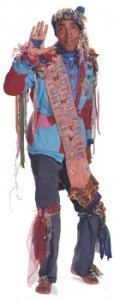
The Boston Globe reports the death of Dr. Hugh Morgan Hill. I don't think many locals imagined that Brother Blue had ever gone by any other name–he had become the spirit of storytelling, keeping traditional tales alive in a lively, street-smart way. I envision him now as one of those beautiful butterflies he wore when he told stories, and I feel sure that he is fluttering in the breezes of southern climes right now, returning north next summer in his new incarnation as the soul of...
October 21, 2009
Maurice Sendak Tells Parents to Go to Hell and Worries That There Is No Place Like Home

What do you say to parents who think the Wild Things film may be too scary?
Sendak: I would tell them to go to hell. That's a question I will not tolerate.
Sendak sounds off on overly protective parents and other matters in a Newsweek interview. He also gives us his take on the MGM film Wizard of Oz and points out the irony of the phrase "There's no place like home." You could say that about almost any place–there's no place like it.
http://www.newsweek.com/id/216997/page/1I've always had...
October 20, 2009
The Media Goes Viral on Children's Literature
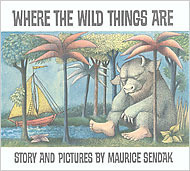
http://artsbeat.blogs.nytimes.com/2009/10/16/the-reading-life-what-makes-a-childrens-classic/
Dwight Garner takes the film version of "Where the Wild Things Are" as his point of departure for a meditation on what makes a children's classic. He invites readers to post titles of children's books passed down through the generations.
The success of "Where the Wild Things Are" has led to a sharp spike in the number of articles and reviews of children's literature. Why is the media suddenly paying ...
Have We Moved Beyond Struwwelpeter?
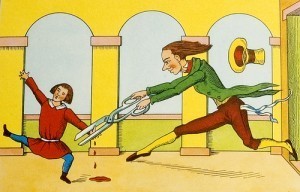
Daniel Zalewski writes about children's picture books in this week's New Yorker. "The kids are in charge," he tells us, and today's picture books are full of anxious, apologetic parents who resort to canned psychobabble in an effort to get their kids to behave: "Use your words," "Hands are not for hitting," "Is there a nicer way to say that?"
We live in a "confrontation-averse age of parenting," he writes, but many picture books have a strong disciplinary edge, no doubt a legacy of all...
The Guardian Goes Wild over Fairy Tales
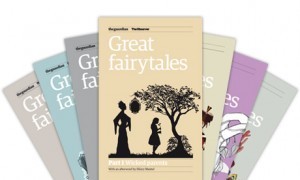
http://www.guardian.co.uk/books/booksblo…
The Guardian is featuring fairy tales for an entire week, with "booklets of our best-loved fairy tales"), all of which can be read on the web. The writers who selected the stories for publication provide a guide to each set of tales. On October 10, for instance, Hilary Mantel wrote about "Wicked Parents in Fairytales." On October 12, A.S. Byatt offered an exquisite meditation on "Love in Fairytales." Philip Pullman, Alison Lurie, Marina Warner, ...
October 19, 2009
Faithful Are the Wounds
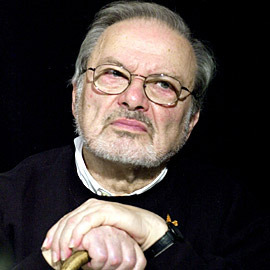
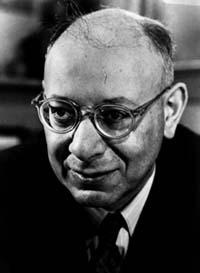
Jack Schafer reports in Slate on Sendak's reaction to Bruno Bettelheim's 1969 critique of Where the Wild things Are in The Ladies' Home Journal. He cites a 2005 NPR interview with Sendak:
Sendak: And that creep—oh, that creep, that psychiatrist, Bruno Bettelheim …
NPR: Who …
Sendak: … otherwise known by me personally as "Beno Brutalheim," because he wrote a long article on Wild Things, which completely destroyed the book.
NPR: Bruno Bettelheim, when Wild Things came out, said that it might...
October 14, 2009
Don't Bet on That Prince!
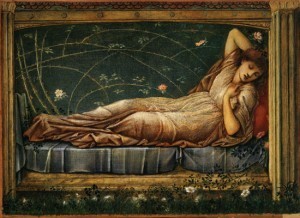
Don Haase, editor of Marvels and Tales, sent me the two covers (posted below) from The Economist and Der Spiegel, which he spotted in the airport last week. "Who Can Save the SPD?" is the caption in the image from Der Spiegel. Fascinating that fairy tales are invoked so often (to add a little color?) in stories addressing economic and political issues. The fantasy of a rescuer waiting in the wings endures into adult life even if the romance and magic are gone. Is there nothing left but...
October 10, 2009
"Better than statistics . . ."

Neal Baer, Executive Producer of Law and Order spoke last week at the Harvard Graduate School of Education about stories as the "currency of our lives"
Showing clips from his popular crime drama, Baer discussed how the show's themes often involve ethical dilemmas drawn from everyday life. By examining complex issues such as abortion, prison torture, and child immunization in compelling ways through sympathetic characters, Baer said, his stories often have the power to educate and inform...
More on Nonsense
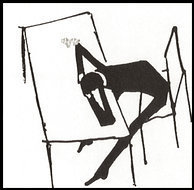
This is how I imagine Kafka reading "How Nonsense Sharpens the Intellect," which appeared in the NYT on October 5. Here's the link
http://www.nytimes.com/2009/10/06/health…
Benedict Carey gives the main features of Kafka's "Country Doctor" and describes the boy in the story as having a "terrible toothache." According to him, the country doctor reaches his patient's house only to learn that the boy has "no teeth at all." If you've read the story, you know that the boy is described as...
October 4, 2009
The Disappearance of Wonder?
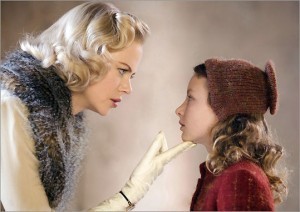
http://www.boston.com/ae/movies/articles…
Ty Burr worries that children's stories translated into the cinematic medium risk losing their "innocence." He makes the point that successful stories for children "address profound aspects of childhood while seeming to look the other way." Films, by contrast, refuse to look away and offer so much information that little room is left for the imagination. I was reminded of early anxieties about sound film. In an essay on the Culture Industry...
Maria Tatar's Blog
- Maria Tatar's profile
- 316 followers



